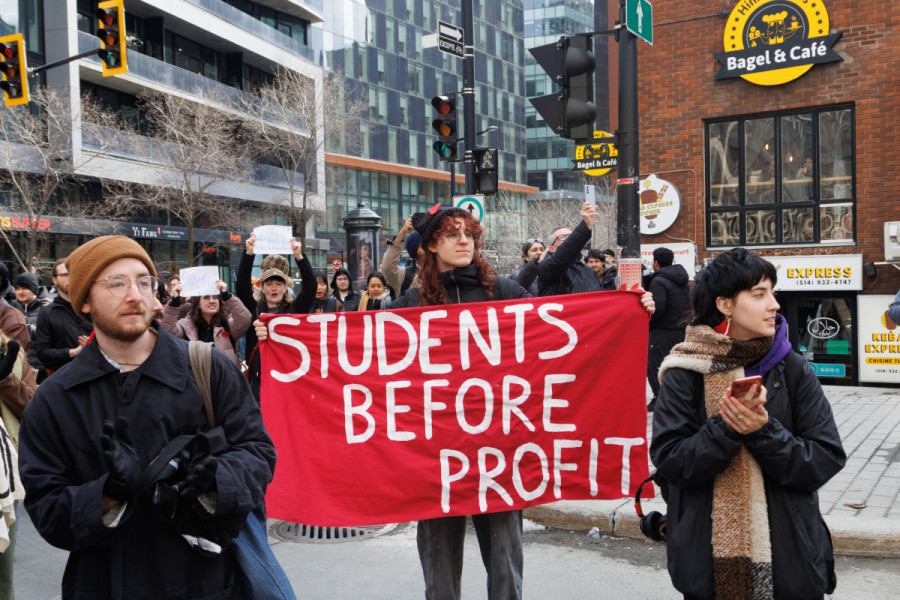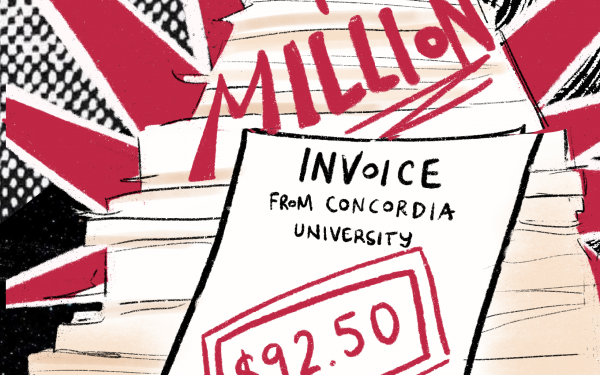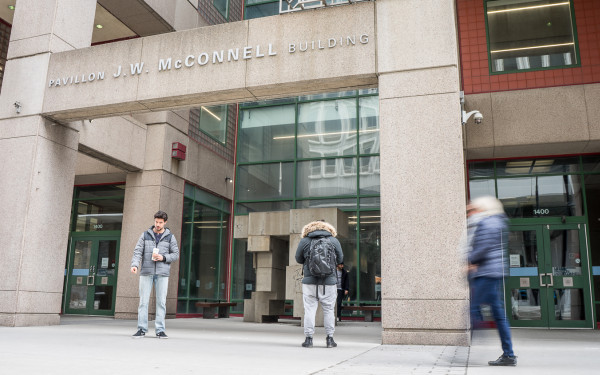How student unions have shaped Quebec, one battle at a time
Student Unions in so-called-Quebec are engines of political change
Disclaimer: These opinions are Adam Semergian's and does not reflect the position of any student assocations he's involved with.
Over the course of four years, I have been involved in the Quebec student movement, and I have seen many political campaigns come and go, some more successful than others.
The common thread of these campaigns has been the extensive support of entrenched student unions here in so-called Quebec. Students and their unions have the power to create positive political change, which can be challenging at times, but not impossible.
Student unions work in Quebec for various reasons. The first province-wide student strike occurred in 1968, advocating for education reform. This led to the creation of the Université du Québec system, with fully government-funded universities, including Montreal’s Université du Québec à Montréal.
Over a decade later, the Act Respecting the Accreditation and Financing of Students’ Associations was introduced, which would give student unions a legally recognized framework to operate under. This is the single biggest piece of legislation that sets Quebec apart from the rest of North America. This legislation allows student unions to be legally recognized on a similar level to labour unions. It reinforced the belief that students are intellectual workers, and without them, Quebec wouldn't function in the near future.
Neutrality often serves as a guise to maintain the status quo. The notion that student unions should remain politically neutral is a contradiction of their very purpose. Student unions exist to advocate for the rights and interests of their members, inherently involving political stances. For example, the victory over the 2012 tuition hike in Quebec was due to explicit political action taken by student unions.
At Concordia University, the growing politicization of student unions has been met with criticism by a select few. Some dissenting students have resorted to misusing the justice system to void political decisions and harass executives and the like for executing mandates. Despite this, student unions must embrace their role as catalysts for change, championing causes that matter to their members.
Anglophone student unions have seen positive changes in the past five years. At institutions like McGill University, Concordia and Dawson College, unions are beginning to prioritize advocacy over social events, and electing representatives committed to union goals. For example, the Arts and Science Federation of Associations (ASFA) allocated over $20,000 for mobilization this academic year.
Additionally, democracy within student unions has improved. In many francophone unions, critical decisions such as budget allocation occur in general assemblies where all members have a vote. At anglophone institutions, decisions are often made by representatives in closed-door meetings. However, strike votes require direct student input, leading to more general assemblies and increased student engagement. This has sparked the very interesting cascade effect of students questioning union operations and mobilizing to hold representatives accountable to their political mandates, including attempting to impeach student union representatives who stray from this goal.
The history of Quebec student unions demonstrates their critical role as platforms for collective action and political advocacy. It is important to recognize student union executives not as "leaders" with unilateral-direct power, but as facilitators of collective decision-making. Mislabeling them as “leaders” not only misrepresents their role, but also undermines the democratic principles at the heart of student unions, and allows administrators and the government to persecute them for actions taken by their members.
Our recent efforts to push Concordia and the Quebec government to divest from and sanction Israel exemplify the collective power of students. Despite facing intense repercussions from said authorities, students and their unions remain committed to the cause.
This work highlights why it is vital for all students to engage with their unions by running for representative positions or participating in general assemblies. True change stems from collective action from the masses—and it begins with you!
This article originally appeared in Volume 45, Issue 7, published January 14, 2025.




_600_375_90_s_c1.jpeg)

__600_375_s_c1.png)
